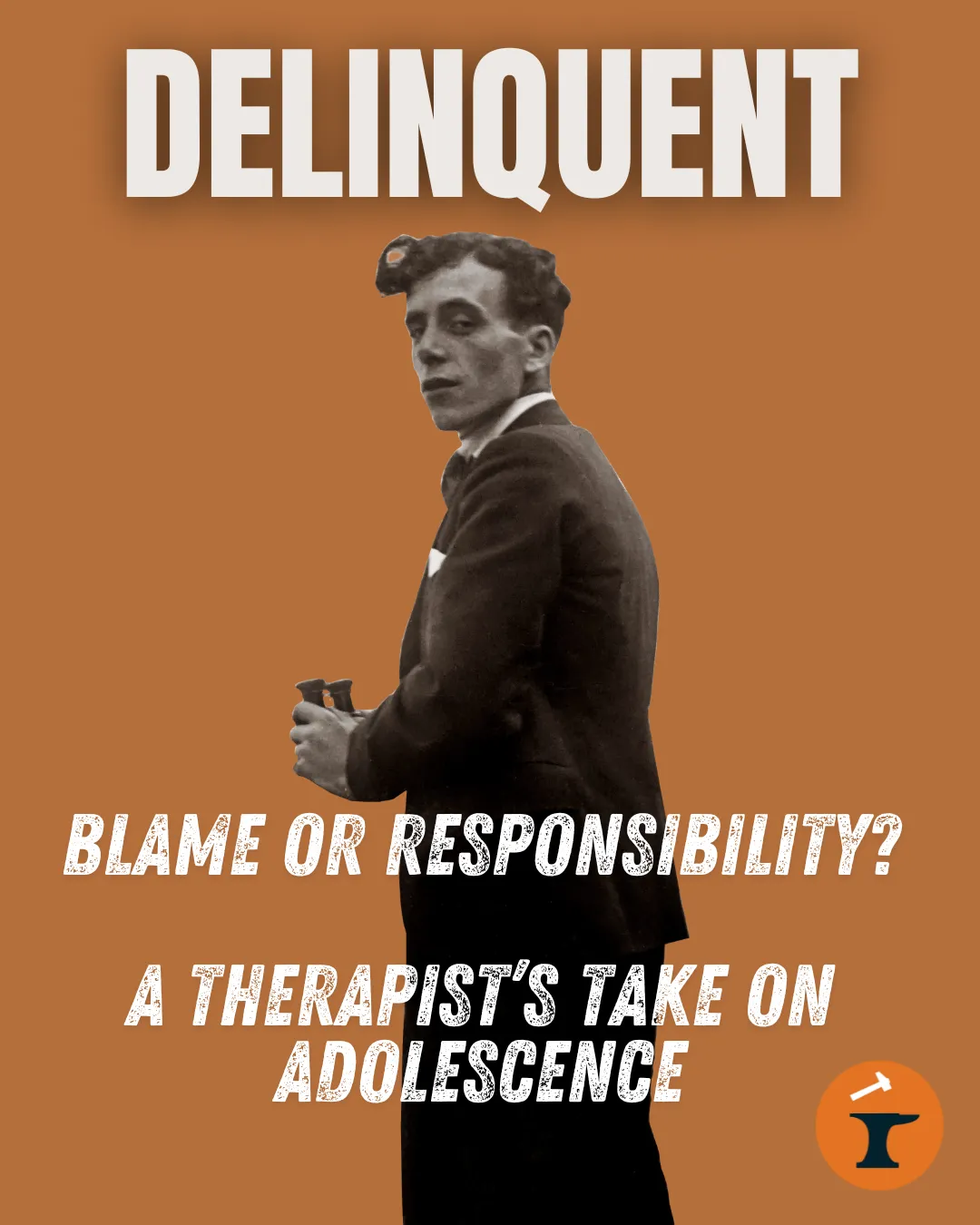
Delinquent
Blame or Responsibility?
A Therapist’s Take on Adolescence
So, who’s at fault?
The Boy
I think most people who have watched Adolescence are shocked and concerned.
A large part of that is an element of confirmation bias, which they have gleaned from mainstream media. Not personal accounts or experiences of their own children. Assumptions based on the latest politically funded narrative, to line someone else’s coffers. Pavlov would have been proud. The covert misandry isn’t inflammatory, as we already know the guilty party: men.
Now there’s no question that Jamie responded to stressors poorly. He was rightly paying the price for his actions. He must come to terms with that responsibility. Take ownership for what he did. Everyone does.
The Parents
While Jamie’s mother’s character has little airtime, what we do see isn’t very compelling. Jamie’s father is clearly more of a focus, so we can only gather information from the perspective that we see. I wonder if this is intentional. The implication is on the males in the family, as Jamie’s elder sister barely appears. In any case, there is no ‘I’ in team.
What we can gather is an apparent disconnect between Jamie and his parents. Both parties of the team seem bewildered and blindsided by the brutal act. Understanding to some degree. Yet, as a therapist once a boy who attended the English school system. I’m not shocked. Not at the premise at least. Perhaps more so by the portrayal.
If applying judgement, the parents have a part to play. Bad parenting. Overbearing husband. Enabling wife/mother. Hostile sibling. As humans, there are always imperfections. Variables that can present as triggers. Catalysts.
The Friends
We get little insight from Jamie’s peer base; yet enough to suggest it wasn’t the most supportive environment. Formative years of teenagers’ lives are spent wrestling their true nature away from the public eye to avoid embarrassment or worse. While they deflect damaging labels or influence from those around them. Perhaps a biased and pessimistic memory of my own. Adolescence does little to quell that idea.
The teachers at that school clearly have little control. The atmosphere is chaotic. Sharp-tongued insults are recklessly thrown about. Discipline lacking, respect absent. The undercurrent of tension reminds me of our short British summers, when school fights seemed to erupt the most. Kids just trying to fit in.
Two of Jamie’s friends are trying to keep their heads down amidst recent events. Suggestions of bullying, a mild case of revenge porn, and general peer group instability. An urban whiff of Lord of the Flies.
The Girl
I read a response to Adolescence that asked if the victim was guilty in any way. A quick no was the result. As a therapist I’ve learned to employ a healthy level of scepticism. Less black. More grey. We have little data of what occurred before the violent end. We have the impression of an advance and an altercation. Still little guilt can be implied depending on what was said by the victim at the time. Maybe more importantly, what was said to or about Jamie before this.
What of the girl’s responsibility? What should she take ownership for? We caught wind that she had sent a salacious photo of herself to another boy in the school. A precarious prospect amongst immature boys. A fine line to tread without question, a disastrous outcome. Did that event spark attraction in Jamie, did it spark revenge by the girl.
We got the impression that Jamie was recklessly labelled, maybe even bullied. To what extent, we don’t know. Where there’s smoke, mind. We don’t know of the girl’s countenance. Her home life, her influence. Adolescent most likely.
The Solution
Doing better is not a definitive solution. If you don’t understand why finger-pointing is a problem, you are part of the problem. If you can’t distinguish between necessary and unnecessary violence, you might be part of the problem. If you’re unable to view anger as an emotion separate from an expression, are you not part of the problem? I would suggest if your conclusion after seeing Adolescence is one guilty party, think again.
Do we not all have a part to play? Inciting division perpetuates the issue. Taking responsibility, making personal changes is the right direction. Between ‘high horses’ and ‘glass houses’, more of us should hold our tongues. Maybe we should say less. Do more. At the very least, don’t act juvenile.
Following on from this I attempt to tackle the “nature vs nurture” debate. You may want to read what’s next: Nature, Nurture or Nudge.
At The Stigman Group, we don’t just talk about what’s wrong—we help men build what’s right. If you’re a man who’s been misunderstood, misrepresented, or just stuck… there’s a better way. Let’s find it together.
